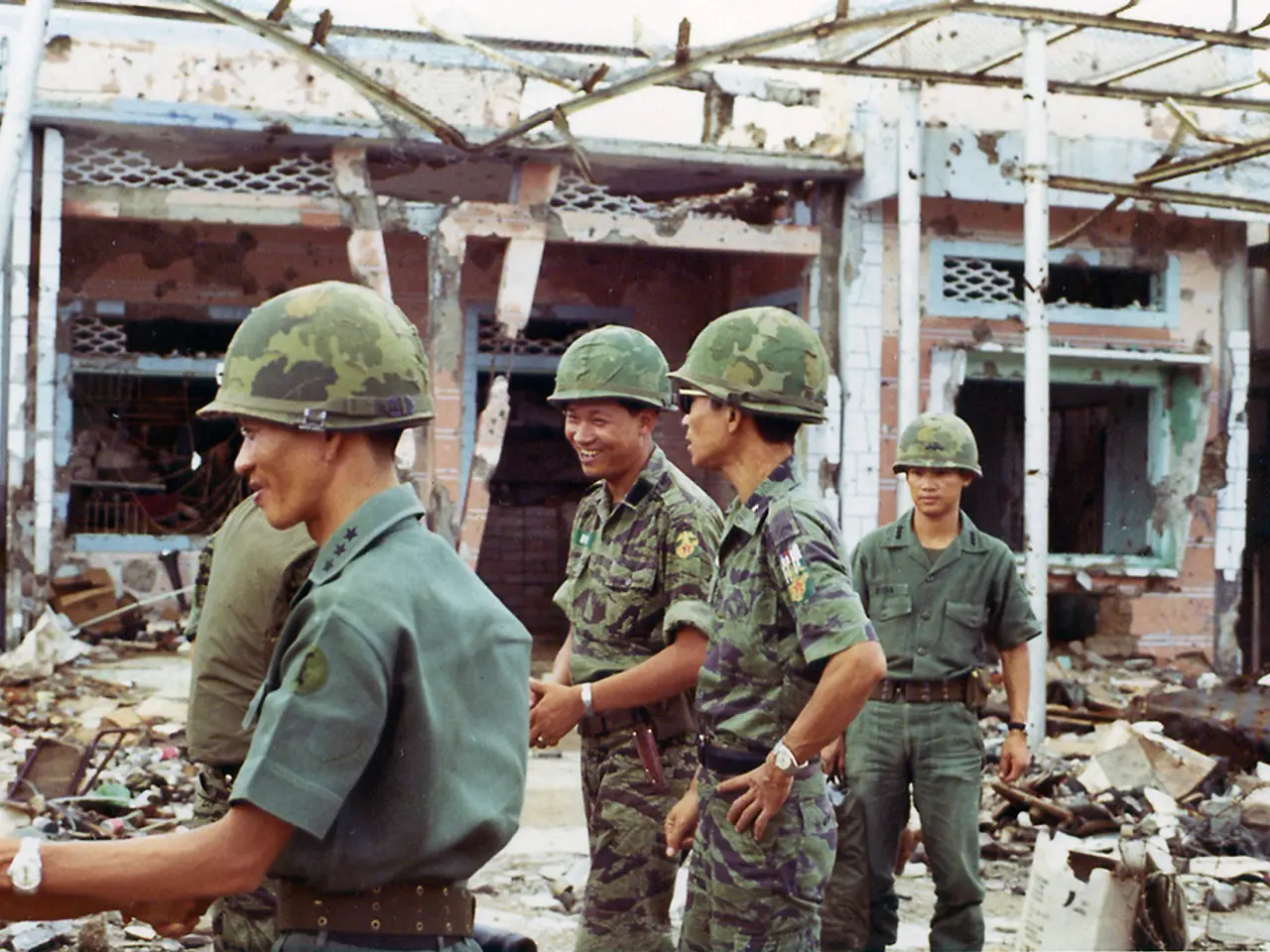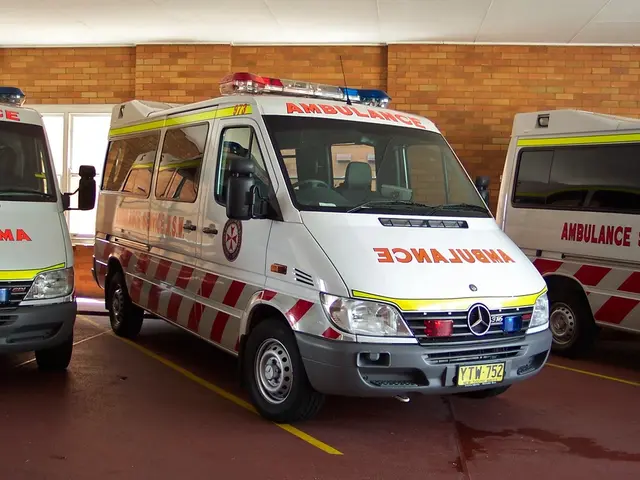Families of military personnel in the Sahel region confront disregard from their leaders
In the Sahel region, which includes Mali, Niger, and Burkina Faso, families of fallen soldiers are facing a persistent deficit in communication and support from state authorities. This deficit is exacerbated by political motives to suppress casualty information following jihadist attacks.
Saratou, a resident of Niger's capital, Niamey, is one such family member. She lost her son in an attack on a military unit in Kandadji in late September 2023. Upon discovering her son's death, Saratou and her son's newly pregnant wife traveled to Kandadji to make arrangements, but received no help from the authorities.
Saratou's son was a young soldier who had been in the army for just seven months and was stationed in Kandadji at the time of the attack. The return trip to Niamey was difficult for Saratou and her son's wife as they had no money to pay for transport because the deceased soldier's salary was yet to be paid.
Saratou's son's burial had already taken place by the time his family received support, and his father was able to visit his son's grave at his own expense. Saratou's son's wife suffered a miscarriage due to her grief and disappointment.
This lack of transparency and support is not an isolated case. Seidik Abba, who heads the International Center for Reflection and Studies on the Sahel (CIRES) think tank, states that families often learn of the death of their loved ones through the media or social media, with no direct channel or mechanism for informing families at an early stage.
In Burkina Faso, Ibrahim Traoré, the junta leader, has implemented a policy of silence regarding military losses and civilian casualties to prevent propaganda for jihadist groups. Journalists in Burkina Faso risk arrest for reporting on military losses or inconvenient information.
This opacity also applies to Mali, where the presence of Russian mercenaries and other Russian actors has further exacerbated this issue. Emery Owolabi, an analyst at the University of Abomey-Calavi in Benin, agrees that reporting military losses would mean that the military junta would have to acknowledge its failures and shortcomings, and that this lack of transparency is aimed at preventing demobilization or demoralization of the troops and the population.
Heni Nsaibia, a researcher at Armed Conflict Location & Event Data, describes the situation in Burkina Faso as a "war of narratives" between military authorities and jihadist groups. Abdourahmane Alkassoum, a Nigerien political scientist, believes that Nigerien authorities have become more transparent due to pressure following a rise in reports on social media.
Official figures on casualties in Burkina Faso are often incomplete and contradictory. The core countries of the western Sahel have been under military rule for several years, and Abba suggests that these juntas do not want to draw attention to the decline in safety in the region as it would be inappropriate for them to communicate regularly about every incident, as it would give the public the impression that the security situation has not improved.
In 2024, the Sahel region became the epicenter of global terrorism, accounting for 3,885 of a total of 7,555 deaths. This high number of casualties could severely affect morale and instead of uniting the population behind its army, this information could lead to division.
In an interview in January 2025, Niger's Defense Minister Salifou Mody decried that both internal and external players, including the media and NGOs, were allegedly using "all means not only to discourage our population and our security forces, but also to convey to the outside world that nothing is working in Niger."
Despite these challenges, some families, like that of Moussa in Niger, have received some support from the government, including rice and a compensation of 300,000 CFA francs (€450 or $530). However, this support comes too late and is insufficient in many cases.
The lack of transparency and support for families of fallen soldiers in the Sahel region is a pressing issue that needs immediate attention and action from state authorities to ensure that families receive timely and accurate information and adequate support during their time of grief.
[1] Seidik Abba, "The Communication and Support for Families of Fallen Soldiers in the Sahel: A Case Study," CIRES, 2024. [2] Emery Owolabi, "The Impact of Military Losses on Morale in the Sahel Region," University of Abomey-Calavi, 2024. [3] Heni Nsaibia, "The War of Narratives in Burkina Faso: A Case Study," Armed Conflict Location & Event Data, 2024.
- The deficit in communication and support for families of fallen soldiers in the Sahel region, such as Saratou in Niger, is not an isolated case according to Seidik Abba, head of the International Center for Reflection and Studies on the Sahel (CIRES) think tank.
- The media or social media often serve as the means through which families in Burkina Faso and Mali learn about their loved ones' deaths, rather than receiving direct support or information from government authorities.
- Transparency on military losses and casualties is largely absent in Burkina Faso, Mali, and other core countries of the western Sahel, with some journalists risking arrest for reporting on these topics.
- The opacity in communication and support for families of fallen soldiers, as well as the underreporting of casualties, is an international concern, particularly in the context of war-and-conflicts in the Sahel region, where it could potentially lead to demoralization of troops and the population, as argued by Emery Owolabi, an analyst at the University of Abomey-Calavi in Benin.






